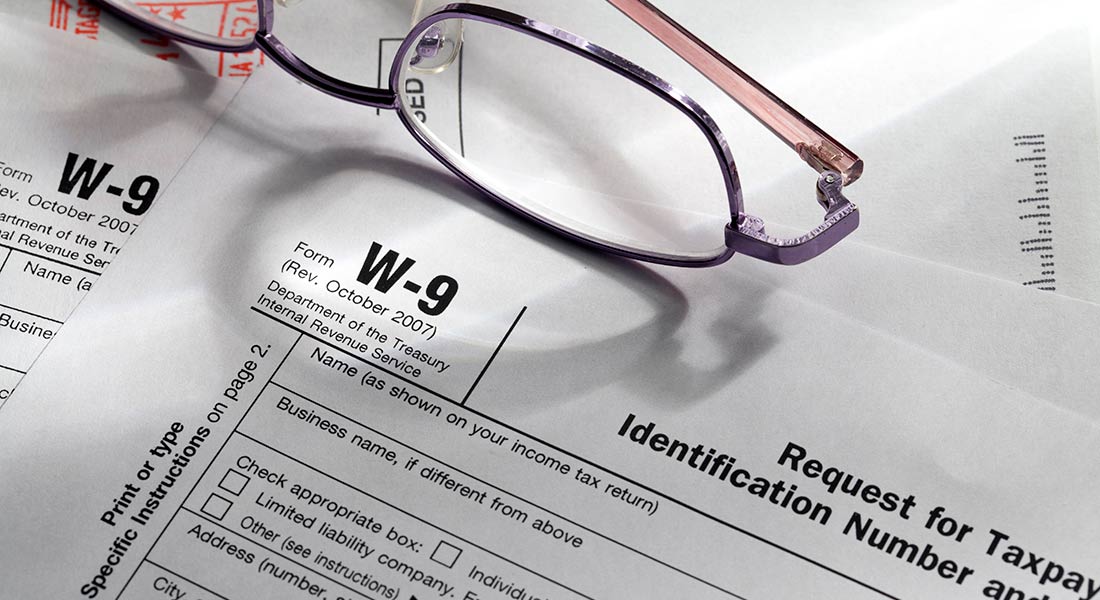Estimated reading time: 4 minutes
Many different tax forms need to be completed and submitted to the IRS. One of the most common forms is the W-9, also referred to as the Request for Taxpayer Identification Number and Certification (TIN). For example, if your small business hires an independent contractor and you pay them more than $600 during the tax year, you must file a 1099 Form to report how much you paid them. A W-9 form contains the independent contractor’s information needed to complete the 1099 Form.
So, it is recommended that you ask your outsourced workers to provide you with W-9 forms. If you want to learn more about Tax Form W-9, this Balboa Capital blog article has the necessary information. It explains what the W-9 form is, why it is needed, and how to get it.
What is Form W-9?
As mentioned above, the W-9 is a widely used IRS form that identifies an independent contractor earning more than $600 in a year. The form collects the taxpayer’s legal name, address, and taxpayer identification and number. It is required for individuals who are not exempt from paying taxes.
If you pay an independent contractor more than $600 in a year, a W-9 will be needed when you file your business tax return. Let us use a flower shop as an example. The shop’s owner paid a freelance content writer $5,000 to update the shop’s website with revised landing pages and blog posts. Because the payments to the freelance content writer exceeded $600, the flower shop owner needs a completed W-9 to complete a 1099 Form.
Getting a W-9 from an independent contractor before they start working is a good idea. Having it readily available when you file your business tax return can help prevent delays.
Where can I get a W-9?
This section of the blog article applies to independent contractors, who must submit a W-9 when they work for a business and are paid nonemployee compensation above $600. So, if you get paid for services you provide as an independent contractor, it is a good idea to have a W-9 ready. Businesses should ask you for a W-9, but they might forget.
The W-9 can be downloaded from the IRS website, which has detailed instructions on filling it out. The form is short and does not take much time to complete. The information you will need to provide on the form includes your name, business name, federal tax classification (single-member limited liability company, sole proprietor, etc.), address, taxpayer identification number, and exemption codes (if applicable), among others. If you do work for more than one business in the same year, you will need to fill out multiple W-9 forms, one for each company that paid you more than $600.
Who files a W-9?
Here is a simple answer: Independent contractors fill out a W-9 form, and the business they performed services for will send it to the IRS. Note: The business should fill in its name and employer identification number (EIN). Companies do not withhold any money from independent contractors’ checks but must report the total amount they paid to the IRS. If an independent contractor does not provide a W-9, a withholding tax will be taken from any future payments made by the client/business.
The IRS may impose additional financial penalties if inaccurate information is added, or the taxpayer identification and number are misused. So, the forms must be filled out with the correct information in a legible format and submitted to the client/business promptly.
Keeping personal information secure.
The W-9 form lists the personal information of independent contractors, so it is vital to keep it secure and not accessible to anyone but the businesses they perform non-employed work for. The form can be downloaded from the IRS website, completed on a computer, and then printed.
Independent contractors can provide their forms via in-person delivery, registered mail, or an encrypted email attachment. It is entirely up to them based on which method they feel most comfortable with.
Balboa Capital, a Division of Ameris Bank, is not affiliated with nor endorses the Internal Revenue Service. The opinions voiced in this material are for general information only and are not intended to provide specific advice or recommendations for any individual.
